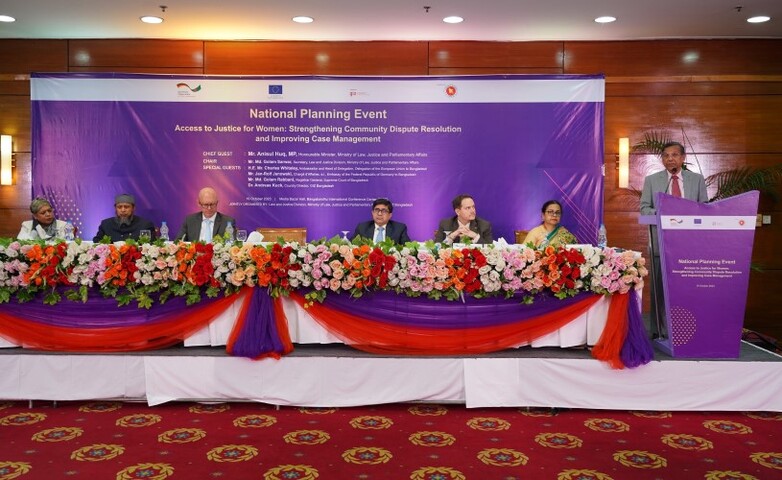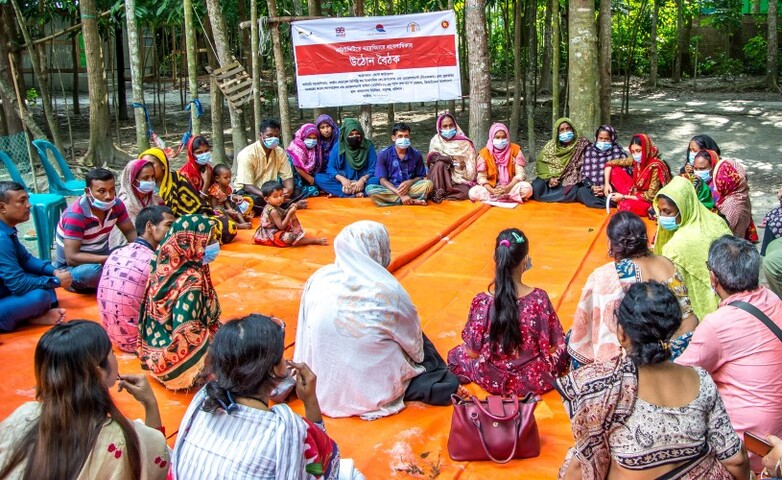Improving access to justice for women through community-based dispute resolution and effective case management
Access to Justice for Women
-
Client
German Federal Ministry for Economic Cooperation and Development (BMZ)
-
Co-financier
European Union (EU)
-
Country
-
Political sponsors
More
-
Runtime
2023 to 2027
-
Products and expertise
Governance and democracy
 © A2Justice Project
© A2Justice ProjectContext
The formal justice system in Bangladesh is overburdened with a case backlog of currently more than four million cases. Justice seekers need to deal with lengthy legal proceedings and high costs if they approach formal courts, even if the cases are minor. Therefore, people seek traditional dispute resolution, which is not gender sensitive and mostly led by conservative village elders. Women are not given the voice to defend themselves. A study shows that 41 per cent of women do not know whom to approach for legal support. Therefore, access to justice is more difficult for disadvantaged parts of the population, especially for women.
Research highlights that the rate of case inflow is much higher than their disposal. A large proportion of cases could have been dismissed at an earlier stage or referred to out-of-court settlement. Citizens, especially women also want to resolve minor disputes locally through alternative gender sensitive dispute resolution mechanisms. This will also prevent their potential escalation to reach already overburdened courts.
 © A2Justice Project
© A2Justice ProjectObjective
Poor and vulnerable persons, especially women, have better access to justice through gender-sensitive dispute resolution and effective case management.
Approach
The project is co-funded by the European Union and works along the following approaches:
- Improving legal aid services through better coordination and partnerships between the National Legal Aid Services Organization and non-governmental and community-based organisations.
- Empowering the vulnerable and poor, especially women, through the establishment of mediation and gender-sensitive dispute resolution services.
- Addressing the backlog of cases in courts through improved case management strategies and approaches.
Last update: June 2024






